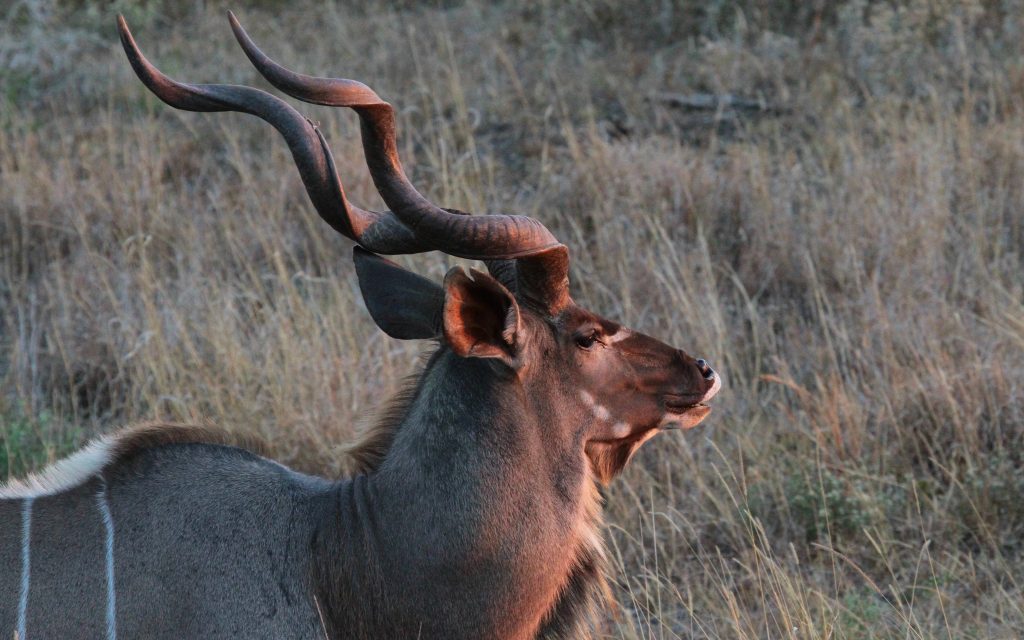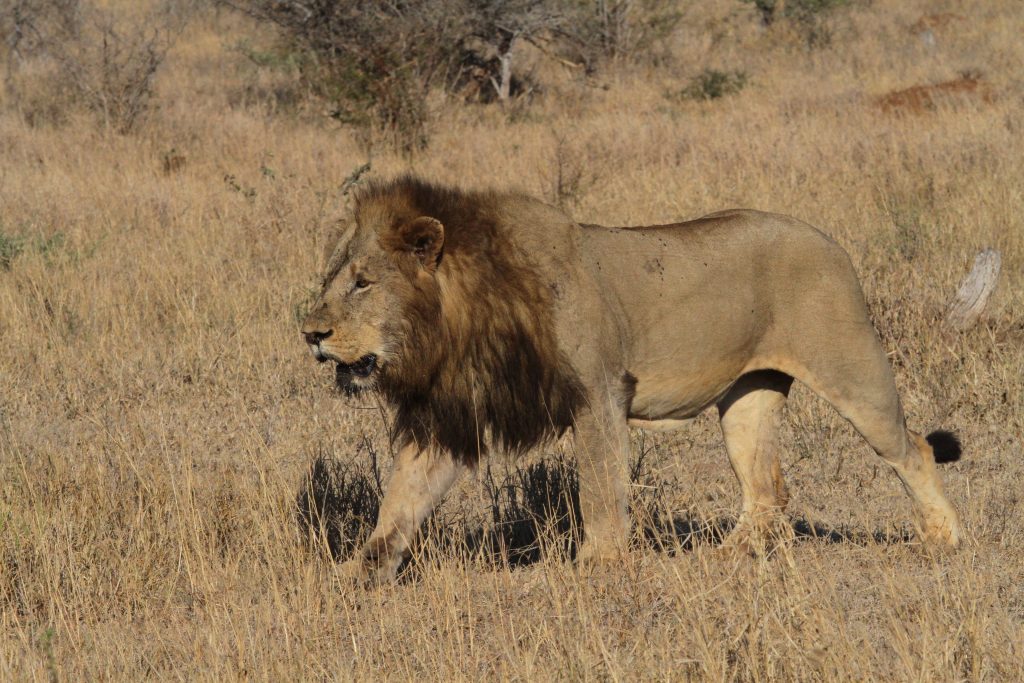I never hunted in Tanzania so I approached Robert De Pole’s autobiographical account of hunting there with anticipation because this was a book I wanted to read for the pleasure of reading and not only for review. For this reason, I found myself reading this book while sitting at my kitchen table with the book in front of me and a full pot of coffee on the counter. Usually, I’d read after breakfast and before heading to my office.
What initially attracted me to this book was the opportunity to read about hunting in Tanzania, but within a few pages, I rapidly discovered the author was a survivor of the brutality that we humans seem to insist on inflicting on each other. In his case, he and his family were the victims of World War II’s inhumanity.

First, some history–Robert DePole is the nom de plume of one of Tanzania’s most successful professional hunters—Robert Kotowicz. Just the same as many other Europeans he arrived in Africa as a part of the great displaced persons migration that convulsed the world with the end of World War II. Robert DePole (Kotowicz) came to Africa via the circuitous route that led through the frozen hell of the Soviet Union’s Siberian camps.
His father, a man who was well-educated in Forestry and Economics in Krakow and Prague, had been able to provide his family with a comfortable lifestyle. In 1931, when Robert was five years old, his father received a plum appointment, he was appointed manager of the large Augustow Forest, which had once been the private hunting grounds for one of Poland’s Kings. Robert discovered the joys of the outdoor lifestyle with fishing trips, berry picking, and later, after receiving a .22 rifle, hunting.
When war broke out Robert was 13 years old and while the Germans were hammering away at one side of Poland the Soviet Union, eager to snatch any fresh fruit in the confusion, overran Poland’s eastern border. In a few weeks, Robert’s idyllic world was shattered by the communist “liberators” who turned his family’s world upside down. In February of 1940 Robert and his family, joined hundreds of other families rounded up by the Soviet troops to be sent by truck, rail, and foot into Siberia. For two years survival was measured in hours. In 1942, the Poles who were imprisoned in Siberia were released as part of an agreement between Stalin and the Allies when Stalin wanted additional war materials.
What followed for his family was a slow and tortuous trip that finally dumped them in Africa. When the war ended they had to face a heart-wrenching decision—return to Poland, which was under the influence of the Soviet Union, immigrate to England, the United States, or another part of the world, or stay in Africa and carve a new life for themselves. They opted for the latter and gradually, haltingly, he and his parents, with their farming partners and their beautiful daughter Irene, set out to become farmers in the lands around Kilimanjaro. Along the route to a successful farm, two key events altered Robert’s life. The first was Irene, who agreed to become his wife and the second was his decision to accompany a neighbor on a crocodile hunt. The idea was to sell the croc hides and use the money to help finance the struggling farm.
Perhaps, if the hunt had gone completely according to plan Robert Kotowicz would have never needed more money to finance more of the farm. Or, if the farm had been profitable in the early years there would have never been a need for additional hunting excursions. But, it didn’t and as the author writes at the end of Part One, “I would remain in Africa for the rest of my life.”
Dinosaur Hunting?
The hunter’s misfortune is often the bedrock of a humorous story and the author’s life as a big game hunter began with an unlikely hunt—he went after a dinosaur. The hunt began with a long trip by truck, then motorboat, and finally a native canoe to Lake Bangweulu in a remote and then inaccessible part of Northern Rhodesia. The hunt ended with his return home five weeks later with nothing but malaria to show for his efforts.
Hunting, however, was a necessary part of maintaining the farm. To protect the fledgling crops from marauding wild pigs, monkeys, and whatever else took an interest in the crops Robert had to hone his skills as a hunter.
Gradually, as the farm grew in size and became more successful he found himself with the opportunity to expand his hunting, and in time, as his success as a hunter grew, primarily in the ivory hunting trade, his reputation as a hunter grew as well and before long he was being asked to accompany others on hunting trips.
Over time the realization came over Kotowicz that he could make a good living as a professional hunter thereby creating for himself, and his family, a dual income, one from the farm and the second from operating a successful safari business. When he first attempted to break into what had been a jealously guarded closed field of professional hunters Robert Kotowicz collided head-first with the “Old Boys Club.” His application for a license was turned down. A year later, however, he again applied for the license, passed his exams, and was in the business of being a professional hunter.
Sometimes, when I started reading this book I wondered if I would ever get past the author’s struggle. It seemed that everything in his life, since the outbreak of the war, had been one struggle following upon the heels of another. When he finally does get into writing his hunting stories there is a remarkable change in the text’s tone. What had been a parade of misfortunes and struggles suddenly is replaced by the rewarding recounting of the life of adventure that we associate with Africa and being a successful professional hunter.
Natural Story Telling
I was well into the text of this book when I realized that Robert Kotowicz could have probably made a good living for himself as a creative writer. The stories are more than interesting; they are alive with detail and structure that is usually missing in autobiographic storytelling. I also found another feature of Tanzania Safari that is hidden in the text—each story stands alone.
Many people who have led adventurous lives are often encouraged to write their life stories. In most cases, the life stories are told in a linear structure that matches the author’s life. It is a long-established and acceptable pattern of writing that ensures the story is both easy to read and easy to write. But it is frequently an inadequate form because it is also limiting, preventing the author from manipulating events within the stories to make the entire text more reader-friendly. Kotowicz skillfully avoids that problem by filling each chapter with a series of complete stories, a form of envelope writing in which one story surrounds another.
One excellent example of this envelope writing structure is Chapter Eight: “More Elephant and Cat Hunting.” The first story is titled “Hunting in Semi-Open Country.” This first story is the recounting of an elephant hunt on which a neighbor accompanied him, intending to learn the ropes of being a professional hunter.
Robert is an accommodating host and he willingly helps his neighbor. A memorable part of the chapter is the author’s one-on-one encounter with a lioness.
The hunting party had killed an elephant and as was customary they had cut off the tail to mark the elephant kill and then returned to hunting, intending to return two or three days later to chop out the tusks. When they returned to the elephant Robert strolled up the carcass, noting that there were no buzzards overhead.
The fallen bull lay with his back to me. In order to come near his tusks, I vaulted over his hind legs and virtually landed on a sleeping lioness. She woke up as I landed next to her and gave a threatening, short roar. To say I was terrified is a mild statement. I remember throwing my hands up in the air and giving her my version of a roar, not to be compared with hers. Fortunately, in this case, it was sufficiently effective. Instead of killing me on the spot, she turned and departed in a hurry, never looking back. After all, how many times does the average lioness get jumped on and screamed at by a man? (155)
Although the sleeping lion incident ended without the author or any of the hunting party being injured it is illustrative of how well he weaves a rich texture in his storytelling.
Here is a book that can be picked up, and read for ten minutes in a coffee break or for an entire evening. What’s even more rewarding is that there is no necessity to read from the first page to the last. It is a rare book that can be read from whatever page it falls open to and closed when the last drop of coffee is drained—and still provides a satisfying read—this is a rare book.
When I reached the closing pages of this book I knew what to expect. In 1961, with the granting of independence, then Tanganyika began to sink into the morass of socialist corruption.
Everything that Kotowicz and his family had built is ultimately lost, seized by the corrupt new government. There is a passion for loss in the closing pages, but he knows that he has the memories of his life as both a farmer and professional hunter, and now, with this book, we can share in his memories. Tanzania Safari is an extraordinary gift to every hunter from a man who had an extraordinary life of adventure.

